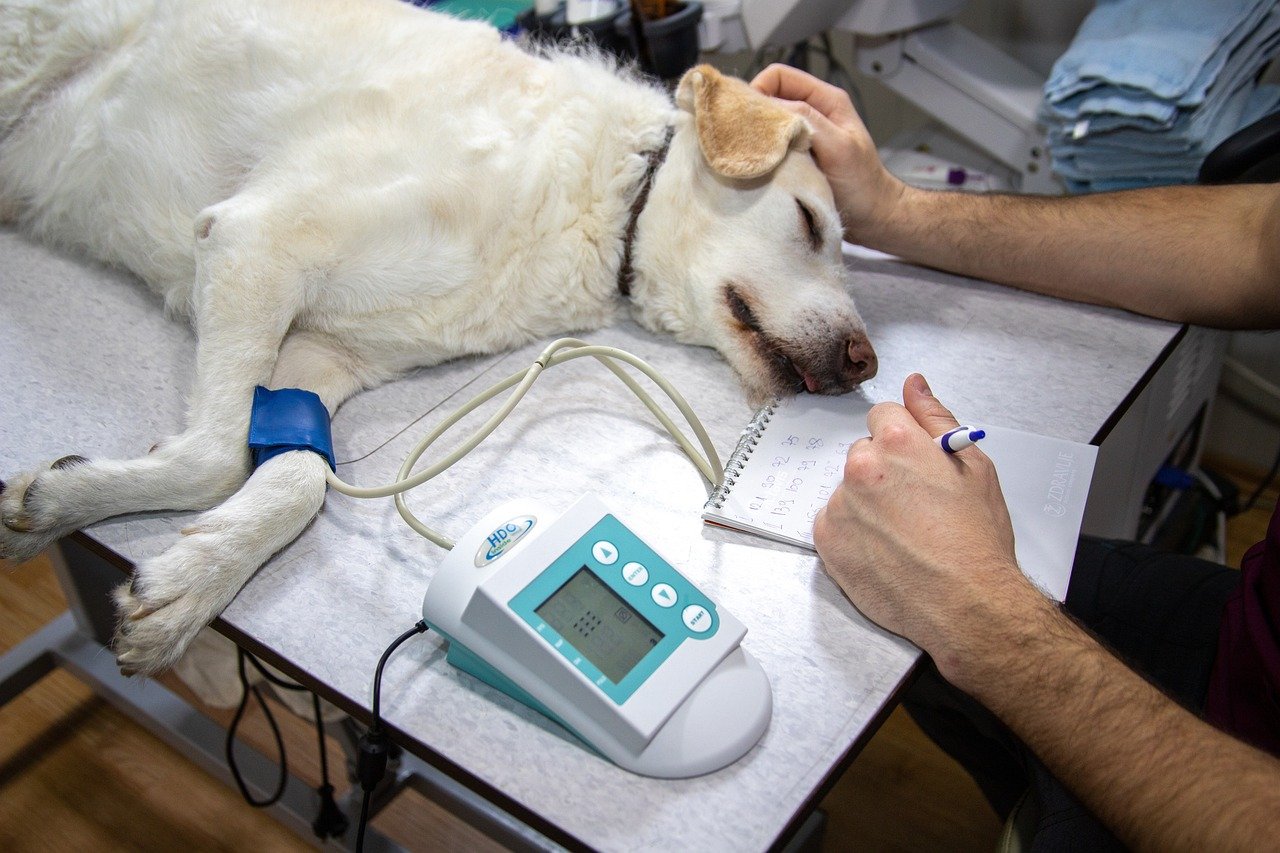Adopting a senior dog might sound daunting, but most of the fears surrounding it are rooted in myths. Contrary to popular belief, older dogs are often already house-trained and understand basic commands, making them easier to manage than puppies. They still have plenty of love—and tail wags—to give, and many are surprisingly playful and active. Another myth? That they’re too expensive—many shelters offer reduced fees for seniors and they often come with full medical assessments. Senior dogs tend to bond quickly with their new humans, cherishing every moment. They bring a calm, grateful energy that’s deeply touching. If you’re looking for a loyal, low-drama companion, a senior dog might just be your perfect match.
Myth 1: Senior Dogs Are Set in Their Ways and Can’t Learn New Tricks
One of the most common beliefs is that old dogs can’t learn new things. The truth couldn’t be further from that. Senior dogs are often eager to please and can pick up new commands, behaviors, and even fun tricks—sometimes faster than puppies. Their calm demeanor means they’re less distracted, making training sessions more effective and rewarding for both of you.
Think of senior dogs like wise old teachers; they might move a little slower, but they pay close attention. If you use gentle, positive reinforcement, you’ll be amazed at how quickly they learn your routines and expectations. Many adopters share heartwarming stories about their older dogs mastering house rules, learning to sit, or even picking up new games. Age doesn’t close the door on learning—it just opens a window to deeper connection.
Myth 2: Senior Dogs Are Always Sick and Cost a Fortune in Vet Bills

It’s natural to worry about the health of an older dog, but not all senior dogs come with a laundry list of medical issues. In fact, many are in good health or have manageable conditions that are well-controlled with routine care. Shelters and rescues often provide thorough health checks and will tell you upfront about a dog’s medical needs.
Veterinary medicine has come a long way, and common issues like arthritis or dental problems can often be treated without breaking the bank. Moreover, many senior dogs require less frequent vet visits than rambunctious puppies prone to accidents or mischief. When you adopt, some organizations even offer ongoing medical support or reduced-cost vet care, easing your concerns about finances.
Myth 3: Senior Dogs Won’t Bond With New Owners
People often fear that an older dog won’t form a deep connection with a new family. This couldn’t be further from reality. Senior dogs are incredibly grateful for a loving home and often form strong, meaningful bonds with their adoptive families. Their past experiences don’t close their hearts—they can make them even more affectionate.
A senior dog’s loyalty can be profound. Many adopters say their older dogs seem to sense they’ve been given a second chance and respond with endless devotion. Whether they curl up next to you on the couch or greet you with a wagging tail after work, their gratitude is unmistakable. Don’t underestimate the power of kindness—a senior dog will never forget it.
Myth 4: You Won’t Have Enough Time Together
It’s tough to face the reality that senior dogs may have fewer years ahead than a puppy. But here’s something to consider: it’s not the quantity of time, but the quality that counts. The moments you share can be deeply meaningful and filled with joy, laughter, and love.
Senior dogs tend to live in the present, savoring each day with their new family. Even a few years—or months—spent together can create memories that last a lifetime. Many adopters feel that the time they have is just right, and that the bond they form is incredibly special. You give a senior dog the best chapter of their life, and they give you memories you’ll cherish forever.
Myth 5: Senior Dogs Are Not Active or Playful

People often imagine older dogs as slow-moving and uninterested in play. While they might not have the endless energy of a puppy, many senior dogs love walks, games, and even short hikes. Their playful spirit isn’t gone—it’s just a bit more measured and, honestly, easier to keep up with!
I’ve seen senior dogs light up at the sight of a tennis ball or eagerly trot after a squeaky toy. With proper care and attention to their physical limits, they’ll surprise you with bursts of enthusiasm. Their playfulness is often more gentle and relaxed, making them perfect companions for families who enjoy a calmer pace.
Myth 6: Senior Dogs Come With a Lot of Behavioral Problems

Another widespread misconception is that senior dogs end up in shelters because they’re “bad” or have serious behavioral issues. The truth is, most older dogs lose their homes due to changes in their owner’s circumstances—like a move, illness, or financial trouble—not because of their own faults.
In fact, many senior dogs are well-mannered, house-trained, and socialized. They’ve lived in homes before and understand how to fit into family life. Of course, any dog can have quirks, but older dogs tend to be past the chewing, digging, and wild puppy antics. They’re often calmer and more predictable, making the transition smooth for everyone.
Myth 7: Senior Dogs Can’t Adapt to New Environments
Some worry that relocating an older dog will be too stressful or confusing for them to handle. But senior dogs are remarkably adaptable, especially when shown patience and love. They may take a little time to settle in, but with gentle routines and affection, they quickly adjust to a new home.
It’s a bit like moving into a new neighborhood as an adult—it might feel strange at first, but you find your rhythm. Senior dogs draw comfort from routine, cozy spaces, and the kindness of their people. With each passing day, you’ll see them relax, explore, and even discover new favorite spots for naps or belly rubs.
Myth 8: You Can Only Adopt a Senior Dog If You’re a Senior Yourself
Some folks believe senior dogs only suit older adopters, thinking their calm nature matches a quieter lifestyle. In reality, senior dogs can fit beautifully into all kinds of families—young professionals, families with kids, or anyone seeking a loyal companion.
Their adaptable personalities mean they can thrive in apartments, suburban homes, or even with other pets. Senior dogs are often less demanding than puppies, making them a great choice for busy people or first-time dog owners. What matters most is your ability to provide love, care, and a safe home—not your age or lifestyle.
Myth 9: Senior Dogs Are a “Sad” Adoption Choice
There’s a misconception that adopting a senior dog is a sad or “last resort” decision. In truth, it’s one of the most uplifting, rewarding acts of compassion you can make. Watching an older dog blossom with love and attention is both heartwarming and inspiring.
Senior dogs often bring a unique sense of gratitude and joy to their new homes. They remind us to live in the moment and find happiness in simple pleasures—a cozy bed, a gentle walk, a loving touch. Far from being a sad story, adopting a senior dog is a celebration of second chances and the enduring spirit of companionship.
Myth 10: Senior Dogs Can’t Be a First Dog
Many people think you need experience to care for a senior dog, but older pups can actually be the perfect “first dog.” They usually come with basic training, are past the chewing and housebreaking stage, and settle easily into routines. Their calm, predictable nature makes them ideal for first-time pet parents.
Senior dogs don’t demand the constant attention or supervision that puppies do. They’re content to enjoy your company, learn your habits, and offer gentle affection. For someone new to dog ownership, the wisdom and patience of a senior dog can make the journey less overwhelming and more joyful.
The myths about adopting senior dogs can be persistent, but the truth is so much brighter than the fears. By looking past these misconceptions, you open your heart to a loyal, loving companion who’s ready for a fresh start—no matter their age. They may be older, but they have just as much heart—and often come with fewer surprises than a puppy. So, if you’re thinking about adding a furry friend to your life, don’t overlook the calm wisdom of a senior pup waiting for a second chance. Adopting a senior dog can be one of the most rewarding decisions you’ll ever make!





